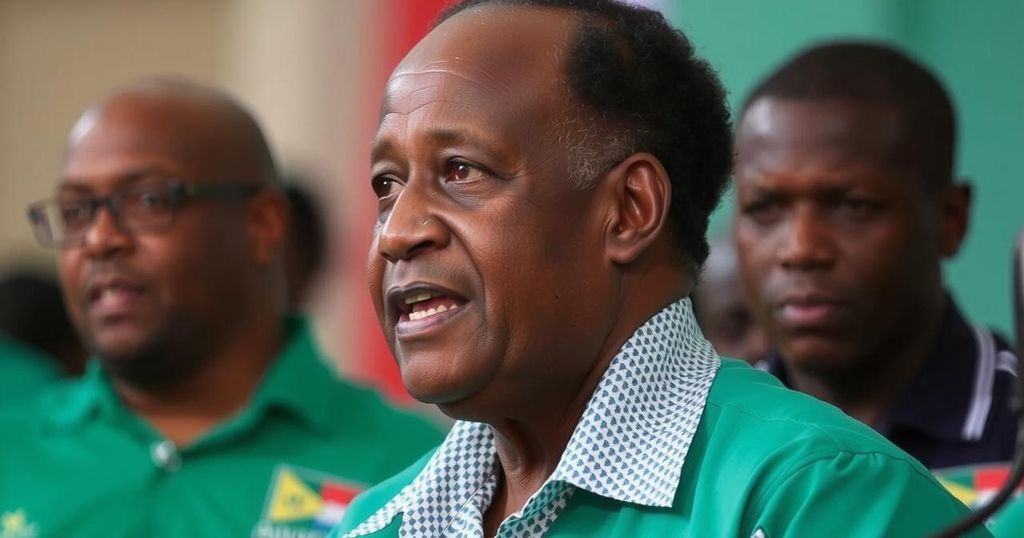Mozambique’s Top Court Upholds Election Results Amidst Protests and Unrest

Mozambique’s top court upheld the ruling Frelimo party’s election victory amidst protests alleging electoral fraud. Daniel Chapo received 65.2% of the vote, while opposition candidate Venâncio Mondlane garnered 24.2%. Protests resulted in violence, with at least 130 fatalities, and concerns over the legitimacy of the electoral process continue to rise, as the nation prepares for Chapo’s inauguration amid a challenging political landscape.
Mozambique’s top court has upheld the victory of the ruling Frelimo party in the presidential elections held on October 9, despite widespread protests and allegations of electoral fraud. Daniel Chapo received 65.2% of the votes, a figure lower than previously announced by the election commission. The opposition candidate, Venâncio Mondlane, garnered 24.2% of the vote, indicating a growing support base among urban youth. However, protests erupted over claims of vote manipulation, resulting in significant violence and unrest throughout the country.
The constitutional council’s report pointed out “discrepancies” during the vote-counting process but did not elaborate on the causes. Additionally, it concluded that the Podemos party had submitted “inflated” claims when challenging the election results. International observers noted potential evidence of ballot rigging, but cautioned that the electoral process may not have been fully equitable for Mondlane.
In the wake of the court’s decision, tensions escalated, leading to burnt tires and armed security forces patrolling the streets of major cities. During his appeal to the public, Mondlane urged supporters to continue non-violent protests, emphasizing the need for electoral integrity to achieve peace in the nation. In contrast, Chapo pledged to pursue electoral reforms and emphasized the importance of dialogue to ensure social stability.
Experts highlight that the unrest prompted by Mondlane’s leadership reflects a shift in Mozambique’s political landscape. Historically, the Frelimo party dominated a relatively weak state, but the emergence of strong opposition figures like Mondlane hints at a redefined political dynamic where citizen frustration is increasingly vocalized.
As Mozambique prepares for Chapo’s inauguration on January 15, the political climate remains tense, and the potential for further conflict looms, urging national leadership to address the underlying grievances that have led to unrest across the country.
Mozambique has experienced significant turmoil following the recent presidential elections, which marked a controversial victory for the ruling Frelimo party amid allegations of electoral fraud and procedural discrepancies. Daniel Chapo, the party’s candidate, won the election amid ongoing protests fueled by opposition dissatisfaction. The political context reveals a populace that is increasingly disillusioned with the prevailing regime, particularly within the urban youth demographic who feel disenfranchised. The unrest has been further exacerbated by tragic natural disasters, compounding the challenges faced by the government.
The confirmation of the election results by Mozambique’s top court highlights escalating tensions within the nation, particularly among youth voters and opposition groups. While Daniel Chapo prepares to assume office, the underlying grievances regarding alleged electoral fraud and social inequality must be addressed to foster dialogue and peace. The potential for continued unrest necessitates prompt and effective discourse between the ruling party and the opposition to stabilize Mozambique’s political environment.
Original Source: www.theguardian.com







